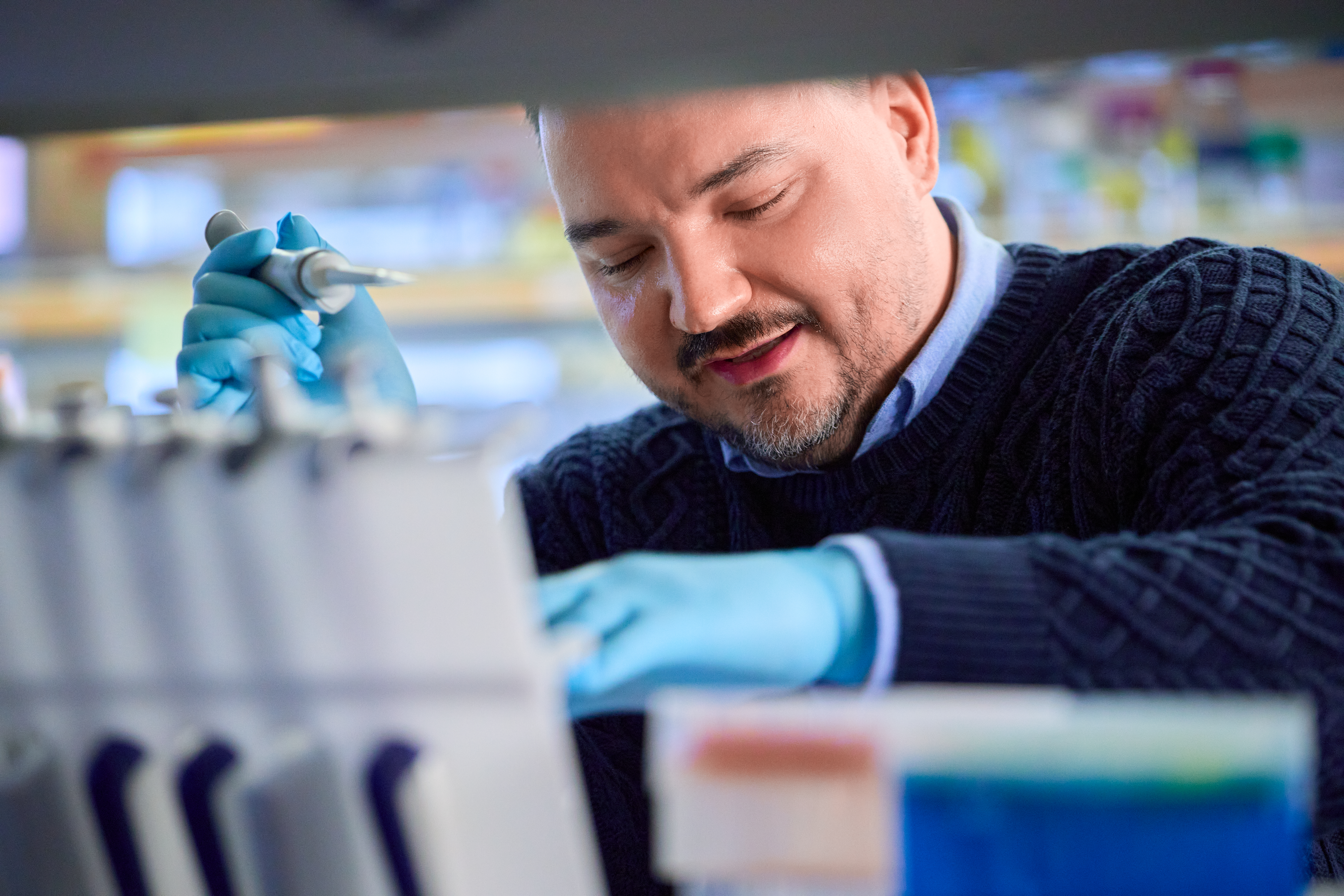
By Kat Procyk
Photography by Joshua Franzos
When Eldin Jašarević, assistant professor of obstetrics, gynecology and reproductive sciences and of computational and systems biology at the University of Pittsburgh School of Medicine, first came to the United States as a 10-year-old refugee from Bosnia, he couldn’t quite grasp what it meant for him or his future.
But, as he reached his teenage years, he began to wonder how the traumatic experiences he faced in childhood could affect his health as he grew older. His concern for his own well-being developed into concern for others, launching a research career focused on understanding how lifetime experiences could contribute to risk for chronic disease. As a postdoctoral fellow, he pioneered work showing that the microbiome, the rich community of microorganisms in various parts of the body, can affect—and help predict—a baby’s development before it’s born.
“I’m really interested in how information is passed down from one generation to the next,” Jašarević (pronounced yah-SHAR-eh-vich) said. “Could it be that our biological signals—shaped by our experiences—are somehow embedded and transmitted to future generations? We think that this transmission might influence everything from health and resilience to the risk of disease.”
This question—born from his own experience with displacement and adversity—has guided Jašarević toward innovative research paths that could help others facing reproductive challenges.
On May 16, 2025, as part of the Senior Vice Chancellor's Research Seminar Series, Jašarević will present his lab's surprising discovery that the microbiome's role as a conduit for intergenerational signals begins much earlier than previously thought. Their research uncovered that the microbiome helps regulate female germ cells, or oocytes, which reflect the basic functional unit of reproduction and perpetuation of species across generations. His research group found that metabolites produced by the microbiome nourish these oocytes and suggests that dietary interventions targeting the microbiome, particularly increasing fiber intake, can improve fertility outcomes by supporting beneficial microbes.
“These findings gave us broader insight into how diet and microbiome interactions could help improve fertility outcomes, especially in individuals with metabolic disorders, a major contributor to infertility and subfertility,” Jašarević said.
Exploring the interplay between the microbiome, diet and the immune system opens opportunities for earlier interventions and could inform new bedside practices, helping to personalize treatments and move away from a one-size-fits-all approach to women’s health. Jašarević envisions developing empirical-based measures to determine the optimal timing and type of dietary interventions for improving reproductive health.
“Part of the challenge of supporting patients during prepartum is that the science is lagging,” Jašarević said. “When someone goes to a clinic and asks what kind of diet I should be on or what their nutrition plan should be, there isn’t a definitive answer from a health care provider. With a knowledge base, we can help people feel empowered and play a part in choosing their interventions.”
For these new interventions, Jašarević emphasizes the importance of considering the microbiome alongside traditional factors in developing more effective clinical approaches.
"What's exciting about this work is the rare opportunity to witness how basic science can transform clinical practice," Jašarević said. "By understanding the underlying biological mechanisms—like how the microbiome influences oocyte development—we can design more targeted, personalized interventions that address the root causes of infertility. Having experienced firsthand how unpredictable life circumstances can reshape families, I believe this is how we make meaningful advances in women's health: connecting molecular discoveries at the bench to innovative solutions at the bedside that ultimately help more people build the families they hope for, regardless of the challenges they've faced."
